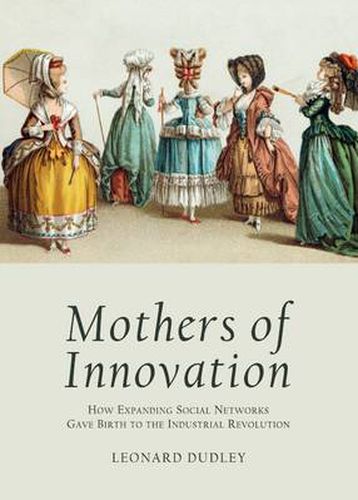Readings Newsletter
Become a Readings Member to make your shopping experience even easier.
Sign in or sign up for free!
You’re not far away from qualifying for FREE standard shipping within Australia
You’ve qualified for FREE standard shipping within Australia
The cart is loading…






What does it take for a society to be able to innovate? The question is crucial today when an increasing share of world patents are taken out by countries such as Japan, South Korea and China, which have limited energy resources and cultures very different from those in the West. However, most previous studies of the beginnings of industrialization have focused on the resources and institutions of Britain alone. As a result, they have missed the lessons to be learned from casting the net more widely so as to examine all regions of the North-Atlantic community. This book pinpoints the surprising differences between innovating and non-innovating regions. Protection of property rights, a practical ideology and abundant resources were not sufficient to spark accelerated innovation.The key to the Industrial Revolution, this study shows through case studies and rigorous verification, was the effect of expanding social networks on people’s willingness to cooperate. Language standardization permitted the widening of circles of cooperation to encompass individuals with increasingly different sets of knowledge. The result was an unprecedented burst of what some linguists have called double-scope blending - the integration of hitherto unrelated concepts to create something new. These findings have important implications for corporate and government policy.
$9.00 standard shipping within Australia
FREE standard shipping within Australia for orders over $100.00
Express & International shipping calculated at checkout
What does it take for a society to be able to innovate? The question is crucial today when an increasing share of world patents are taken out by countries such as Japan, South Korea and China, which have limited energy resources and cultures very different from those in the West. However, most previous studies of the beginnings of industrialization have focused on the resources and institutions of Britain alone. As a result, they have missed the lessons to be learned from casting the net more widely so as to examine all regions of the North-Atlantic community. This book pinpoints the surprising differences between innovating and non-innovating regions. Protection of property rights, a practical ideology and abundant resources were not sufficient to spark accelerated innovation.The key to the Industrial Revolution, this study shows through case studies and rigorous verification, was the effect of expanding social networks on people’s willingness to cooperate. Language standardization permitted the widening of circles of cooperation to encompass individuals with increasingly different sets of knowledge. The result was an unprecedented burst of what some linguists have called double-scope blending - the integration of hitherto unrelated concepts to create something new. These findings have important implications for corporate and government policy.